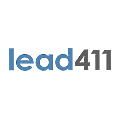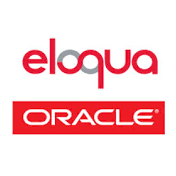Best B2B Data Providers Shortlist
Here’s my shortlist of the best B2B data providers:
Navigating the challenges of modern marketing can be tough. With data-driven decisions becoming more imperative, finding the right B2B data provider is key.
Ultimately, you need software that provides more accurate insights to help you target the right audience and boost your team's overall performance. However, with so many options available, it can be difficult finding your ideal software.
To help you get started in your search, I tested and reviewed B2B data providers to help you find the best fit for your needs. My goal is to offer an unbiased, well-researched guide.
Throughout this article, I'll share my top picks and insights to help you discover the right solution for your marketing challenges. Let's look at the world of B2B data providers and find the solution that works for you.
Why Trust Our Software Reviews
We’ve been testing and reviewing marketing software since 2022. As marketing managers ourselves, we know how critical and difficult it is to make the right decision when selecting software. We invest in deep research to help our audience make better software purchasing decisions.
We’ve tested more than 2,000 tools for different marketing use cases and written over 1,000 comprehensive software reviews. Learn how we stay transparent & check out our software review methodology.
Best B2B Data Providers Summary
This comparison chart summarizes pricing details for my top B2B data providers to help you find the best one for your budget and business needs.
| Tool | Best For | Trial Info | Price | ||
|---|---|---|---|---|---|
| 1 | Best for company insights | Free plan available | From $49/month | Website | |
| 2 | Best for GDPR-compliant data | Free demo available | Pricing upon request | Website | |
| 3 | Best for real-time sales alerts | 7-day free trial + free demo available | From $99/user/month | Website | |
| 4 | Best for account-based marketing | Free demo available | Pricing upon request | Website | |
| 5 | Best for predictive analytics | Free demo available | Pricing upon request | Website | |
| 6 | Best for contact enrichment | Free plan available | From $29/month/user | Website | |
| 7 | Best for tech market data | 90-day free trial + demo available | From $21/user/month (billed annually) | Website | |
| 8 | Best for healthcare industry data | Free demo + free plan available | From $50/month | Website | |
| 9 | Best for European market focus | 14-day free trial | From $220 billed annually | Website | |
| 10 | Best for demand generation insights | Free demo available | Pricing upon request | Website |
-

Eloqua
Visit WebsiteThis is an aggregated rating for this tool including ratings from Crozdesk users and ratings from other sites.4.3 -

Optimizely
Visit WebsiteThis is an aggregated rating for this tool including ratings from Crozdesk users and ratings from other sites.4.2 -

Uberflip
Visit WebsiteThis is an aggregated rating for this tool including ratings from Crozdesk users and ratings from other sites.4.3
Best B2B Data Providers Reviews
Below are my detailed summaries of the best B2B data providers that made it onto my shortlist. My reviews offer a detailed look at the key features, pros & cons, integrations, and ideal use cases of each tool to help you find the best one for your business.
Coresignal provides fresh, structured public web data on companies, professionals, and job postings. With millions of continuously updated records, it offers datasets and APIs tailored for various business needs.
Why I picked Coresignal: Coresignal's company data offers a comprehensive view of millions of companies worldwide. This dataset includes details such as industry classification, location, size, founding year, funding rounds, valuation, and executive information. Access to this information enables your team to identify potential business opportunities and assess market trends effectively.
Standout features & integrations:
Features include multi-source company API, employee API, data change webhooks, Elasticsearch capabilities, AI-powered data enrichment, customizable data delivery frequency, global data coverage, and multiple data formats (JSON, CSV).
Integrations aren't available natively, but Coresignal delivers data through flat files and APIs so you can connect it to your own systems as needed.
Pros and cons
Pros:
- Extensive datasets covering companies, employees, and job postings
- Regular updates ensure data freshness and relevance
- Historical data access supports trend analysis and forecasting
Cons:
- The extensive data volume might be overwhelming for users
- Technical setup required
New Product Updates from Coresignal
Coresignal Introduces Multi-Source Jobs Dataset
Coresignal has launched the Multi-Source Jobs Dataset, offering deduplicated and comprehensive data from major job boards. For more information, visit Coresignal's official site.
Cognism is a sales intelligence platform designed for sales, marketing, and recruitment professionals. It aids in lead generation, list building, and data enrichment for over 3,000 companies.
Why I picked Cognism: Cognism is known for providing GDPR-compliant data, making it a reliable choice for businesses concerned with data privacy. The platform offers access to phone-verified mobile numbers and B2B emails, allowing users to connect with a high percentage of contacts. Additionally, its international coverage across EMEA, NAM, and APAC sets it apart, along with its compliance with Do Not Call regulations.
Standout features & integrations:
Features include advanced lead generation tools, access to a vast database of mobile numbers and B2B emails, and compliance with GDPR and Do Not Call regulations.
Integrations include Salesforce, HubSpot, Outreach, Pipedrive, Microsoft Dynamics, Salesloft, Slack, LinkedIn, Marketo, and Pardot.
Pros and cons
Pros:
- GDPR-compliant data
- International coverage
- Access to mobile numbers
Cons:
- Limited to EMEA and US
- Complexity in setup
Lead411 is a sales intelligence platform that helps users identify prospects and track opportunities. It supports professionals by delivering actionable insights to enhance outreach efforts and sales strategies.
Why I picked Lead411: Lead411 is known for offering real-time sales alerts, and keeping your team informed about potential opportunities. The platform provides verified email addresses and direct dials, ensuring high-quality contact data. Its sales trigger notifications also alert you when a prospective company is ready for engagement. This feature helps your team reach out promptly, improving the chances of conversion.
Standout features & integrations:
Features include an advanced contact database that offers verified information for accurate outreach, notifications and alerts, and data enrichment tools to enhance the quality of your existing records.
Integrations include Salesforce, HubSpot, Pipedrive, Zoho CRM, Microsoft Dynamics, Marketo, Outreach, LinkedIn, Slack, and Zapier.
Pros and cons
Pros:
- Real-time sales alerts
- Verified contact information
- Timely prospect engagement
Cons:
- Limited customization options
- Requires learning curve
Demandbase is a marketing and sales intelligence platform designed for B2B companies. It focuses on account-based marketing (ABM) to help organizations target, engage, and convert high-value accounts.
Why I picked Demandbase: Demandbase is tailored for account-based marketing, offering tools that align marketing efforts with sales strategies. The platform provides detailed account insights, enabling your team to personalize and optimize campaigns for key accounts. Its intent data feature also helps identify prospects' interests, guiding your team's outreach efforts. Additionally, Demandbase's analytics offer a clear view of campaign performance, ensuring your marketing efforts are on track.
Standout features & integrations:
Features include real-time personalization, advanced advertising capabilities to enable targeted ad campaigns to reach the right audience, and strategic reporting tools, providing insights into account engagement and campaign success.
Integrations include Salesforce, Marketo, HubSpot, Microsoft Dynamics, LinkedIn, Slack, Eloqua, Oracle NetSuite, Adobe Experience Manager, and Pardot.
Pros and cons
Pros:
- Real-time personalization tools
- Intent data for targeted outreach
- Detailed campaign analytics
Cons:
- Requires ABM strategy alignment
- Limited to B2B use cases
6sense is a sales and marketing platform that helps businesses uncover demand and predict customer behavior. It supports teams by providing insights into account engagement and pipeline opportunities, enabling more informed decision-making.
Why I picked 6sense: 6sense excels in predictive analytics, helping your team forecast buyer intent and prioritize leads effectively. The platform uses intent data to uncover insights about potential customers' interests. Its account identification feature also allows you to target the right prospects at the right time. Plus, 6sense's analytics provide an advanced view of your market, enhancing your team's decision-making process.
Standout features & integrations:
Features include dynamic segmentation, a lead scoring system to help rank prospects by potential value, and campaign orchestration tools to align your marketing efforts with sales strategies.
Integrations include Salesforce, HubSpot, Marketo, Adobe Experience Manager, Slack, LinkedIn, Pardot, Oracle NetSuite, Microsoft Dynamics, and Eloqua.
Pros and cons
Pros:
- Strong predictive analytics capabilities
- Dynamic prospect segmentation
- Effective lead scoring system
Cons:
- Limited outside B2B focus
- Needs dedicated data management
Lusha is a sales and marketing tool designed to provide accurate contact details. It helps professionals enhance lead information, ensuring more effective outreach.
Why I picked Lusha: Lusha is focused on contact enrichment, providing accurate phone numbers and emails for your leads. The platform excels at enhancing your existing contact data, making it more actionable for your team. Additionally, its database is continually updated, ensuring that the information you access is current, while its browser extension allows you to quickly find contact details.
Standout features & integrations:
Features include a bulk enrichment tool that lets you update large datasets with fresh information, a browser extension for easy access to contact details, and standard compliance with major data protection regulations.
Integrations include Salesforce, HubSpot, Pipedrive, Zoho CRM, Microsoft Dynamics, Outreach, LinkedIn, Slack, Marketo, and Zapier.
Pros and cons
Pros:
- Accurate contact data enrichment
- Continually updated database
- Easy access browser extension
Cons:
- Limited data beyond contacts
- May need manual data validation
Datanyze is a sales intelligence platform catering to sales and marketing teams. It focuses on providing technology usage insights and contact information to help users identify potential leads.
Why I picked Datanyze: Datanyze offers seamless, in-depth tech market data, which is essential for teams targeting tech-driven businesses. The platform provides detailed technology stack insights, enabling you to understand what tools your prospects use, which helps in tailoring your sales pitch effectively. Plus, Datanyze's ability to track technology adoption trends offers a competitive edge in identifying business opportunities.
Standout features & integrations:
Features include technology stack analysis, predictive analytics, and real-time alerts for changes in a company’s tech usage.
Integrations include Salesforce, HubSpot, LinkedIn, Microsoft Dynamics, Marketo, Outreach, Pipedrive, Zoho CRM, Slack, and Zapier.
Pros and cons
Pros:
- Detailed tech stack insights
- Real-time technology alerts
- Predictive analytics features
Cons:
- Limited non-tech data focus
- Learning curve for new users
Ampliz is a data platform tailored for the healthcare sector, serving professionals in sales and marketing roles. It focuses on delivering accurate healthcare industry data for lead generation and market research.
Why I picked Ampliz: Ampliz specializes in healthcare data, making it invaluable for sales teams targeting this sector. The platform offers access to extensive databases of healthcare professionals and organizations. Additionally, key features like data segmentation and custom reports allow your team to pinpoint specific markets, while its focus on compliance with healthcare regulations ensures that the data you use is trustworthy and legal.
Standout features & integrations:
Features include advanced data segmentation, which helps you categorize and target specific market segments effectively. The platform also offers email campaign tools, enabling you to reach out to prospects directly. Plus, Ampliz provides detailed market insights, helping you understand trends and make informed decisions.
Integrations include Salesforce, HubSpot, Pipedrive, Zoho CRM, Marketo, Mailchimp, LinkedIn, Slack, Zapier, and Microsoft Dynamics.
Pros and cons
Pros:
- Customizable data reports
- Detailed market insights
- Effective data segmentation
Cons:
- Limited non-healthcare data
- Requires industry knowledge
Dealfront is a sales intelligence platform tailored for businesses targeting the European market. It serves sales and marketing professionals by providing reliable data-driven insights to enhance lead generation and customer engagement.
Why I picked Dealfront: Dealfront focuses on the European market, offering localized data that's important for businesses in this region. The platform provides in-depth insights into European companies, helping your team identify high-potential leads. Its data enrichment tools also allow you to enhance your existing customer information. Additionally, Dealfront's analytics features help you track the effectiveness of your engagement strategies.
Standout features & integrations:
Features include detailed company data profiles that offer valuable insights into business operations and market position, lead scoring to help prioritize prospects based on potential value, and customizable reports.
Integrations include Salesforce, Microsoft Dynamics, HubSpot, Pipedrive, Zoho CRM, Marketo, Slack, LinkedIn, Zapier, and Google Sheets.
Pros and cons
Pros:
- Detailed company profiles
- Effective lead scoring
- Customizable reporting features
Cons:
- Limited outside Europe data
- Requires market knowledge
DemandScience is a data-driven platform designed for sales and marketing teams to enhance demand generation and lead nurturing efforts. It provides valuable insights into market trends and potential customer interests.
Why I picked DemandScience: DemandScience specializes in demand generation insights, offering detailed market intelligence that helps your team identify potential prospects. The platform provides a rich database of intent data, allowing you to tailor your outreach based on current buyer interests. With its predictive analytics, you can anticipate market shifts and adjust your strategies accordingly. Additionally, DemandScience's data point accuracy ensures that your team is working with reliable information.
Standout features & integrations:
Features include an advanced intent data tool that identifies buyer interests, helping you tailor your marketing strategies. The platform also offers predictive analytics to forecast market trends and shifts. Additionally, it provides data enrichment services to enhance the quality of your existing customer information.
Integrations include Salesforce, HubSpot, Marketo, Eloqua, Pardot, LinkedIn, Microsoft Dynamics, Oracle NetSuite, Slack, and Zapier.
Pros and cons
Pros:
- Detailed market intelligence
- Accurate intent data
- Predictive analytics capabilities
Cons:
- Requires understanding of market data
- Limited to B2B market focus
Other B2B Data Providers
Here are some additional B2B data providers options that didn’t make it onto my shortlist, but are still worth checking out:
B2B Data Providers Selection Criteria
When selecting the best B2B data providers to include in this list, I considered common buyer needs and pain points like data accuracy and compliance with regulations. I also used the following framework to keep my evaluation structured and fair:
Core Functionality (25% of total score)
To be considered for inclusion in this list, each solution had to fulfill these common use cases:
- Lead generation
- Data sources and enrichment
- Contact list verification
- Market segmentation
- Sales prospecting
Additional Standout Features (25% of total score)
To help further narrow down the competition, I also looked for unique features, such as:
- Real-time business data updates
- Predictive analytics and data solutions
- GDPR compliance features
- Multi-language support
- Customizable reporting
- Advanced search
Usability (10% of total score)
To get a sense of the usability of each system, I considered the following:
- Intuitive navigation
- Clean interface design
- Easy data import/export
- Minimal learning curve
- Accessible support resources
Onboarding (10% of total score)
To evaluate the onboarding experience for each platform, I considered the following:
- Availability of training videos
- Interactive product tours
- Access to webinars
- User-friendly templates
- Responsive chatbots
Customer Support (10% of total score)
To assess each software provider’s customer support services, I considered the following:
- 24/7 support availability
- Multichannel support options
- Response time
- Knowledgeable staff
- Comprehensive help center
Value For Money (10% of total score)
To evaluate the value for money of each platform, I considered the following:
- Competitive pricing
- Feature set versus cost
- Tiered pricing options
- Discounts and offers
- Cost transparency
Customer Reviews (10% of total score)
To get a sense of overall customer satisfaction, I considered the following when reading customer reviews:
- User satisfaction rates
- Commonly reported issues
- Praise for specific features
- Feedback on support quality
- Comparison to competitors
How to Choose B2B Data Providers
It’s easy to get bogged down in long feature lists and complex pricing structures. To help you stay focused as you work through your unique software selection process, here’s a checklist of factors to keep in mind:
| Factor | What to Consider |
| Scalability | Ensure the tool can grow with your business, handling increased data volume and user numbers smoothly. |
| Integrations | Check if the software connects easily with your existing CRM, marketing tools, and other systems. |
| Customizability | Look for options to tailor the software to your team's specific needs and workflows. |
| Ease of Use | Consider the learning curve for your team. Software with user-friendly interfaces help save time and reduce frustration. |
| Budget | Compare the pricing plans with your budget. It’s important to consider hidden costs or tiered pricing models when choosing a solution. |
| Security Safeguards | Verify that the provider complies with data protection regulations and offers strong security features. |
| Data Accuracy | Evaluate the provider's reputation for delivering reliable and up-to-date information. |
| Support | Consider the availability and responsiveness of customer support to assist with any issues. |
Trends In B2B Data Providers
In my research, I sourced countless product updates, press releases, and release logs from different B2B data provider vendors. Here are some of the emerging trends I’m keeping an eye on:
- AI-Driven Insights: Vendors are leveraging AI to provide deeper insights into customer behavior, company information, and market trends. This helps users make more informed decisions quickly, with some tools now offering predictive analytics to anticipate future needs and opportunities.
- Intent Data Utilization: Companies are increasingly using intent data to understand customer needs better and tailor their marketing strategies. Tools like DemandScience are integrating this feature to help businesses identify potential B2B leads based on their online behavior.
- Enhanced Data Privacy: With increasing regulations, data privacy features are becoming more important. As such, vendors are prioritizing compliance with regulations like GDPR and CCPA to enhance their privacy compliance features and protect user data.
- Real-Time Data Enrichment: More providers are offering real-time data updates, ensuring that users have the most current information available. This trend is important for maintaining data quality, accuracy, and relevance in fast-paced markets, regardless of company size.
- Customizable Reporting: Businesses are demanding more flexibility in how they view and analyze data. Vendors are responding by offering customizable reporting tools that allow users to generate reports tailored to their specific needs, making data more actionable.
What Are B2B Data Providers?
B2B data providers are either companies or software that collect, compile, and sell data that businesses can use to target, engage, and make informed decisions about their interactions with other businesses.
These providers focus on delivering accurate, actionable insights into other companies, markets, industries, and decision-makers to support B2B sales, marketing, research, and strategic planning efforts.
Sales and marketing professionals typically use these tools to identify and connect with potential clients. Key features such as data enrichment, predictive analytics, and intent data capabilities help businesses with targeting the right audience and personalizing outreach. Overall, these tools enhance business strategies by providing accurate and actionable insights.
Features of B2B Data Providers
When selecting B2B data providers, keep an eye out for the following key features:
- Data Enrichment: Enhances existing contact information with additional data, improving the accuracy and completeness of your records.
- Predictive Analytics: Provides insights into future market trends, social media, and ideal customer profiles, helping you make informed decisions.
- Intent Data: Identifies potential leads based on their online behavior, allowing for more targeted marketing strategies.
- Real-Time Data Updates: Ensures that your information is current, reducing the risk of relying on outdated data.
- Customizable Reporting: Lets you tailor reports to your specific business needs, making accurate data analysis more actionable.
- Lead Scoring: Prioritizes prospects based on potential value, helping your team focus on high-priority accounts.
- Compliance with Data Regulations: Ensures that your operations adhere to regulations like GDPR and CCPA, safeguarding user privacy.
- Market Segmentation: Allows you to categorize your target audience into distinct groups and demographics, enabling more personalized outreach.
- Sales Trigger Alerts: Notifies you of significant changes or events at target companies, prompting timely sales engagement.
- Browser Extension: Provides easy access to B2B contact details while browsing, streamlining the prospecting process (i.e. Safari or Chrome extensions).
Benefits of B2B Data Providers
Implementing B2B data providers provides several benefits for your team and your business. Here are a few you can look forward to:
- Improved Lead Generation: Access to enriched and up-to-date data helps your team find and connect with potential clients more effectively.
- Better Decision-Making: Predictive analytics and market insights offer valuable information, guiding your business strategies in the right direction.
- Targeted Marketing: Intent signals and market segmentation allow for more personalized and efficient marketing campaigns.
- Time Savings: Real-time data updates and browser extensions streamline the process of gathering and using contact information.
- Enhanced Compliance: Features that ensure adherence to data regulations protect your business from legal issues related to data privacy.
- Increased Sales Efficiency: Lead scoring and sales trigger alerts help your team focus on the most promising prospects, improving overall productivity.
- Actionable Insights: Customizable reporting provides your team with tailored data analysis, making insights directly applicable to your business needs.
Costs and Pricing of B2B Data Providers
Selecting B2B data providers requires an understanding of the various pricing models and plans available. Costs vary based on features, team size, add-ons, and more. The table below summarizes common plans, their average prices, and typical features included in B2B data providers' solutions:
Plan Comparison Table for B2B Data Providers
| Plan Type | Average Price | Common Features |
| Free Plan | $0/user/month | Access to basic contact data, limited searches, and basic data export. |
| Personal Plan | $10-$30/user/month | Enriched data access, real-time updates, and integration with CRM. |
| Business Plan | $50-$100/user/month | Customizable reporting, lead scoring, and intent data analysis. |
| Enterprise Plan | $150-$300/user/month | Advanced analytics, full data privacy compliance, dedicated support, and unlimited data enrichment. |
B2B Data Providers FAQs
Here are some answers to common questions about B2B data providers:
How often should B2B data be updated?
B2B data should be updated regularly to maintain accuracy and relevance. Most providers offer real-time updates or frequent refreshes to ensure you have the latest information. Regular updates help you avoid outdated data, which can lead to missed opportunities and ineffective marketing strategies.
Can B2B data providers integrate with my CRM?
Yes, many B2B data providers offer integrations with popular CRM systems. This integration allows easy data transfer and management, helping your team streamline workflows. Ensure the provider you choose supports your specific CRM to maximize efficiency and data utility.
How do data privacy regulations impact B2B data providers?
Data privacy regulations like GDPR and CCPA significantly impact B2B data providers. Providers must comply with these regulations to protect user data and avoid legal issues. Ensure the provider you choose is compliant to safeguard your business and maintain customer trust.
How can intent data improve my marketing efforts?
Intent data helps you understand your prospects’ interests and buying intentions. By analyzing online behavior, you can tailor your marketing strategies to target the right audience more effectively. This leads to higher conversion rates and more personalized outreach.
What is the role of predictive analytics in B2B data?
Predictive analytics uses historical data to forecast future trends and behaviors. In B2B data, it helps you identify potential leads and market opportunities. By leveraging predictive insights, your team can make informed decisions and optimize business strategies.
What's Next?
Ready to grow? Subscribe to The CMO newsletter.


























